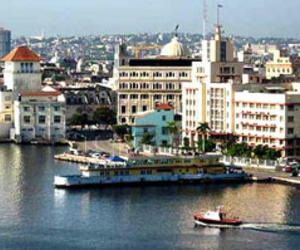CUBA: Is buying a car or a house possible?
- Submitted by: manso
- Editorial Articles
- 09 / 01 / 2011

07/27/11 By Leonardo Padura Fuentes (*) HAVANA, Jul (IPS) Cuba may be the only country in the world whose citizens have, for half a century now, not been allowed to freely acquire a car or a home. Indeed the very words have a very different connotation on the island.
As a part of the egalitarian policies of the state, which has exerted total control over most of the property in the country, the socialist government,during its fifty years in power, has emitted a series of laws and regulations which, originally intended to limit the amount of property a person could accumulate and to reform the way real estate can be held (so-called "urban reform"), allowed people to keep some of these properties -one home and one car- though in reality the latter was not entirely theirs because only cars manufactured before 1959 could be freely and legally sold to other Cubans.
For a Cuban to be able to "own" a home or a new car the government created complex mechanisms that are still in operation. In moments of economic good times it was possible for certain enterprising people to build on top of their existing home or on land they held what were known as "home-made" homes.
However, the most frequent way to come by a house was to receive a "grant", whether on the basis of merit or exceptional need, of a property on the condition that it be used only by the beneficiary (in many cases it could be passed on to one's heirs) but never sold to anyone unless the "grant" explicitly transferred the title to the property via a bill of sale, though for a price that was actually payable for the majority of these fortunate few.
In the last fifteen years, in the full economic crisis left by the 1990s, it became possible to buy a new or used but recently manufactured car for people who somehow managed to save enough money and who obtained from either a president of certain institutions, a minister or even the vice president of the Council of State or the Council of Ministers the famous "letter" authorising the holder to buy a car from a government agency -a car which was taxed at an extortionate rate and which could subsequently be sold only back to the government and then at a rock-bottom price typical in monopolies.
The rules that apply to real estate remain more or less the same, given that the prohibition on sales and limits on housing swaps (known as "permutas") were intended to prevent the parties involved from making any profit from buying or selling their home.
To control the limited range of transactions that might involve these properties (which as should be clear could never fully own) the General Housing Law was passed to regulate virtually every change of residence, legal or not. Over the years numerous increasingly paralysing executive orders(5), decrees(2), and 180 other similar regulations, orders, and guidelines were introduced by the National Housing Institute, the Justice Ministry, and other organisations to regulate this sector.
As for cars, there were "40 bans or limits on the transfer of property".
What is significant is that despite this complex system of regulation and oversight, especially regarding real estate, there emerged a black market which a Cuban could navigate only by breaking any number of laws whether out of desperation or sheer recklessness.
Moreover, none of this led to any relief in the extremely tight housing situation, where shortage was perennial and the condition of properties is rapid and unarrested decline.
Now in the process of "updating its economic model" initiated by president Raul Castro, the Cuban government has decided to relax the controls on buying and selling cars and homes. The announcement of this change still did not include any mention of a sale of new homes or cars (which would be a great deal for a state monopoly) but only the sale of existing ones, subject to various rules and heavy taxes imposed on selling, inheriting, and owning. Five decades later, what is essentially a universal practice is returning to Cuba.
Just as in the above quotations, all taken from material published in Granma,the official newspaper of the ruling Cuban Communist Party (the July 1 breakdown of a meeting of the Council of Ministers) I will now use quotation marks again
because the paper affirms -and this is important- that the new policy will also seek to eliminate "bureaucratic regulations that lead to the manifestation of malfeasance or corruption"?
It is nonetheless curious that this mass of laws, decrees, resolutions, and prohibitions have in the end engendered a proliferation of violations,corruption, illegality, and obstructions that benefit the most crooked and rash individuals and a vast legion of bureaucrats corrupted by the proliferation of laws and decrees that they supposedly should observe and apply for the good of all. (END/IPS)
(*) Leonardo Padura Fuentes is a Cuban writer and journalist whose novels have been translated into more than fifteen languages. His most recent work is The Man Who Loved Dogs, featuring Leon Trotsky and his assassin Ramon Mercader as
central characters.
http://www.other-news.info/index.php?p=4003
Source: http://groups.yahoo.com/group/CubaNews/message/126019
Comments